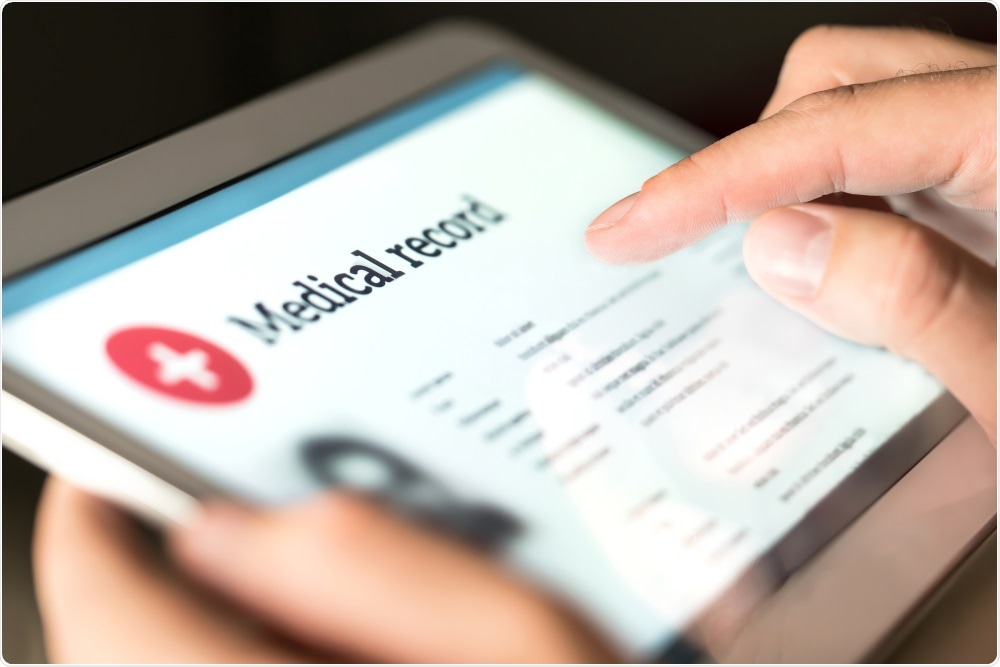
Releasing Control from Practitioner to Patient Through Technology
 Tradeshow TalksLumiraDxSarah Fairbairn, Product Discovery
Tradeshow TalksLumiraDxSarah Fairbairn, Product DiscoveryAn interview with Sarah Fairbairn, Product Discovery Team Manager, LumiraDx, at the NHS Health and Care Innovation Expo, discussing the need for innovation in the NHS, and how LumiraDx were able to change the model of care for patients on anticoagulants.
What are the major challenges currently facing the NHS?
Obviously; money, capacity, resources to cope with an ageing population, but also the public’s expectations. People not only want to live longer and receive the best treatments available, but they also want instantaneous access to healthcare and information.
 Image Credit: Tero Vesalainen / Shutterstock
Image Credit: Tero Vesalainen / ShutterstockJust today I checked into my hotel using my phone, ordered online shopping and transferred a payment to someone. All from my mobile.
But when it comes to healthcare, we’re still lagging behind and people’s expectations are not being met. That’s the greatest challenge for the NHS right now; meeting the public’s expectations – how can managing your health be as easy as online banking?
How are cloud-based technologies transforming the medical industry?
For years, patient information sat within the hospital or GP’s own databases, not connected to any other care providers systems. This meant that it was extremely difficult for commissioners to assess the success of each service and compare it to other services in the UK.
You might have twenty anti-coagulation services in a single area, for example, and no way of comparing the care that each patient is receiving at those centers. With our population analytics you can see up-to-date data across all your anticoagulation services – that wouldn’t be possible without cloud-based technology.
Cloud-based technologies are about improving data accessibility. If the data is in the cloud, then it can be accessed by clinicians where and when they need it - for example if someone is on holiday in Cornwall, they can go to a clinic using INRstar and their full anticoagulation history can be pulled up.
If the data is in isolated pots all over the place, it can’t be accessed by the people who need it, so I think that cloud technology is transforming healthcare because it's enabling the data to flow and become connected.
How have LumiraDx helped change the model of care for anticoagulation?
There are around 1 million people taking anticoagulants in the UK. Twenty years ago, you’d typically have your blood checked at a hospital clinic and then a junior doctor would work out what dose of blood thinner to prescribe you.
As you may imagine, this was resource intensive for the NHS and time-consuming for patients. There used to be lots of back and forth with referrals and laboratory results.
One of our founders was running one of these clinics and thought, “There must be a better way to do this”. So, he wrote a piece of software called INRstar, with built in algorithms to suggest the correct dosage of medication to give the patient.
The INRstar software helped change the model of care for patients on blood thinners. It meant that GPs no longer had to be so involved in the routine process, and nurses or healthcare assistants could take on much of the workload.
In the last few years we’ve moved into self-care; patients are able to carry out their own blood test on a portable coagulometer and using our engage app send the result to their care team. They then receive the correct dose from their anticoagulation service who has processed it remotely. It saves nurse time and means less clinic visits for people.
 Image Credit: Ocskay Mark / Shutterstock
Image Credit: Ocskay Mark / ShutterstockWhat is health coaching, and how does it help patients manage their condition?
Health coaching is a great way of helping people understand their condition and motivating them to make key lifestyle changes that help them stay well. It is becoming a lot more accessible through the availability of wellbeing apps, which can be accessed by both the health coach and the patient.
Whenever you talk to patients who have long-term conditions, they often say that they have no control over their condition. This makes it really frightening and scary for them.
But through initiatives such as health coaching and motivational interviewing, you can help patients feel empowered, and they start to want to change their lifestyle, which can have a massive impact on their physical and mental health.
Health coaching is a hugely important piece of the puzzle, because so many of these long-term conditions have to do with lifestyle. However, GPs and nurses often don’t have the time to coach patients and this is where health apps can play a role.
Our self-care app includes short, easy to follow education videos which help people understand why anticoagulation is important as well as simple do’s and don’ts.
Being able to support patients outside of acute care is becoming increasingly difficult for doctors in today’s NHS. How are LumiraDx working to ease this?
The NHS needs to move towards a different model of care – making the most of digital technologies which can automate much of the routine work. It’s about enabling individuals to self-care as well as giving them access to care where and when they need it.
We need collaborative, connected care where responsibility and ownership of care is shared with the patient, with support when needed from the clinician.
If individuals are able to access care in an easy and convenient way many hospital admissions could be avoided through providing the right treatment earlier.
We are building on our anticoagulation model and taking it into supporting long-term conditions, moving towards connected self-care which saves clinic time, is convenient and easy-to-use as well as improving health outcomes.
Where can readers find more information?
About LumiraDx
LumiraDx Care Solutions is the home of INRstar (an anticoagulant management tool) and engage (a supported self-care platform for patients). engage gives patients the knowledge, skills and confidence to self-care whilst staying connected with their care teams. Both INRstar and engage belong to the LumiraDx family.






















.png)









No hay comentarios:
Publicar un comentario